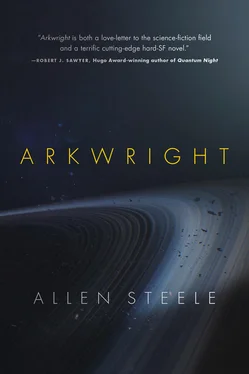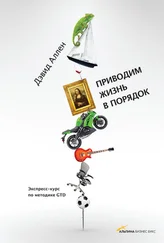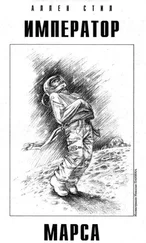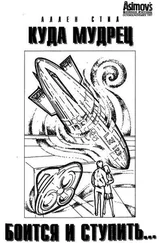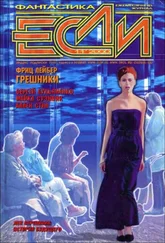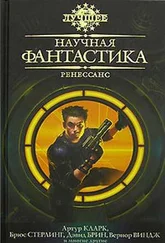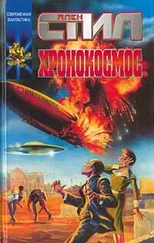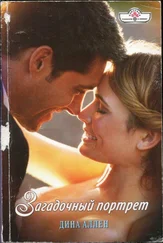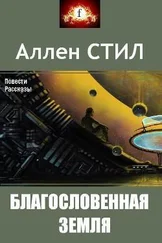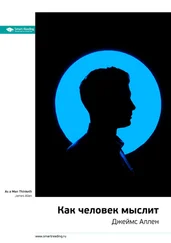Kate glanced at the card Maggie handed her: KROUGH LITERARY AGENCY, with a Park Avenue address in New York. “Why don’t you just tell me?” she asked.
“Think of this as investigative journalism,” Maggie replied. “Just don’t publish the results.”
“Okay, but how do I know you’ll tell me the truth?”
“You can trust us,” George said, a sly smile upon his face. “We’re the Legion of Tomorrow.”
My Life in the Future sat untouched on Kate’s desk for the next couple of weeks while she worked on the nuclear power plant story. Autumn winds were pulling the leaves from the trees before she had a chance to pick it up again; by then, the conversation she’d had with her grandfather’s friends had faded to the back of her mind, becoming little more than a curious incident.
Her mother didn’t apologize for skipping the funeral, but she seemed a little more interested when Kate told her about having met Maggie, Harry, and George. She didn’t know the two men but told Kate that she’d known Maggie over the years; apparently, she got along with Grandpapa’s agent, because she asked how she was doing. Yet she wasn’t surprised that her father hadn’t remembered either her or Kate in his will and was only mildly put out to discover that he’d left everything to the Arkwright Foundation.
“Figures he’d do that,” she said, sitting across the breakfast nook from Kate when her daughter came to visit her. “Even in the end, he cared nothing for his family.”
Hearing this, Kate remembered something Maggie had said: how her grandfather had actually cared for her but that her mother had stood in the way. “Mom, why didn’t you and Grandpapa get along?” she asked. “What did he do that was so terrible?”
Her mother stared down at her coffee cup. “It’s better that you don’t know.”
Kate hesitated. “Did he … umm … touch you, or…?”
“No.” Sylvia Arkwright shook her head. “Grandpapa may have been many things, but child molester wasn’t one of them.” She picked up her coffee, and Kate noticed that her hand trembled slightly. “But he was cold toward me most of my life, and I knew even as a young girl that he really didn’t love me. It wasn’t until she was dying that your grandmother told me why.”
“And that is?”
Her mother said nothing for a few moments and instead gazed out the kitchen window. “She made me swear that I wouldn’t tell you until Grandpapa was gone,” she said at last. “I’m not sure I’m ready to break that promise yet. It’s a little too painful, and I’m just not willing to share that with anyone. Even you.”
It was this conversation that reignited Kate’s interest in her grandfather’s unfinished autobiography. Upon returning home, she picked it up from her desk and carried it into the den. There was a message on her phone from the guy she’d been dating for a while; he complained that he hadn’t seen her in a couple of weeks and wanted to know if they could get together soon. Kate had never been good at maintaining relationships, but she realized that if she didn’t let him know that she was still interested in him, he’d slip out of her life the way so many of her other former boyfriends had. All she needed to do was make a quick call and promise to get together with him for dinner and a show.
Of course she would. Then she turned to the first page of Grandpapa’s autobiography, and that idea faded from her mind.
“My life changed,” Nathan Arkwright would later write, “the day I picked up the June 1939 issue of Astounding Science Fiction and read in ‘In Times to Come’ that there would be a convention of science fiction fans in New York during the first week of July. Since it was intended to coincide with the New York World’s Fair in Flushing Meadows, it was being called the World’s Science Fiction Convention. Although I knew at once that I had to go, little did I realize that it would shape my destiny…”
Sunday morning church bells were still echoing through midtown Manhattan when Nat strolled down West Fifty-ninth Street. He didn’t know exactly where Caravan Hall was, but that was where the piece in Astounding had said the convention was being held. As it turned out, it was a couple of blocks from the Hudson River waterfront, and he didn’t have to look hard to find it. A handful of young men standing out front holding copies of the latest issues of Amazing, Astounding, and Thrilling Wonder told him that he’d come to the right place.
Oddly, two police officers stood beside the steps leading to the front door. They were eyeing everyone who walked in, and Nat couldn’t help but notice that one of them was tapping his nightstick against his leg. This didn’t look good. Nat decided that he’d better make sure he was in the right place, so he approached three guys standing across the street from the hall. One of them, a skinny fellow with a row of protuberant front teeth, gazed at Nat as he stepped up to them.
“Excuse me, but—” Nat began.
“You’re looking for the World’s Science Fiction Convention?”
Nat nodded.
“Upstairs. Second floor.” He nodded toward the door. “Who are you?”
“Nat Arkwright, from Brooklyn.”
“Fred Pohl, from Queens.” He offered a handshake as he nodded to the others. “Don Wollheim and Cyril Kornbluth.”
Nat shook hands with each of them, trying not to show his nervousness. He recognized Wollheim and Pohl as bylines from stories he’d read; they weren’t major writers, to be sure, but he was envious to meet fellows not much older than himself who’d succeeded in selling stories to the pulps. But it wasn’t just that. Nat had never before met anyone else who shared his passion for science fiction; no one else at Brooklyn High had the slightest bit of interest in this sort of thing, and he found himself anxious to fit in.
“How did you find out about this?” Cyril asked. He was a big, broad-shouldered fellow whose sharp eyes peered at Nat from behind horn-rimmed glasses.
“Saw a bit about it in that magazine.” Nat pointed to the copy of Astounding tucked under Cyril’s arm. It was the new issue, with a cover story, “Black Destroyer,” by someone he’d never heard of, A. E. van Vogt. “Close enough to where I live, so I decided to drop in.”
“Oh, so you’re new to this,” Don said. “Lucky for you. They’re banning the Futurians.”
Nat gave him a baffled look. “What’s a Futurian?”
The other three were already chuckling over this. “Maybe it’s better you don’t know,” Fred said. “But you may want to move on. If someone sees you with us, they might not let you in.”
Putting two and two together, Nat determined that these three fellows were Futurians, whoever they might be. He looked across the street at the cops. “Is that why they’re here?”
“Uh-huh.” Cyril followed Nat’s gaze; one of the cops stared back, and neither the cop nor Cyril dropped his eyes. “Sam … that’s Sam Moskowitz, the convention chairman … saw us coming and wouldn’t let us in. We tried to rush the door, and he called the cops—”
“ You rushed the door,” Fred said pointedly. “I was still at the dentist.”
“Yeah, you got here late and missed everything.” Don was grinning like the proverbial cat. “That, and Cyril punching Forry Ackerman in the stomach—”
“He had it coming.” Cyril smiled at Nat and then suddenly balled a fist and feigned a lunge at him.
It wasn’t the first time someone had tried to fake him out this way; Nat didn’t flinch but simply glared at him instead. Disappointed, Cyril relaxed, and Nat turned to Fred again. “What does Sam have against you that makes him want to—”
Читать дальше
